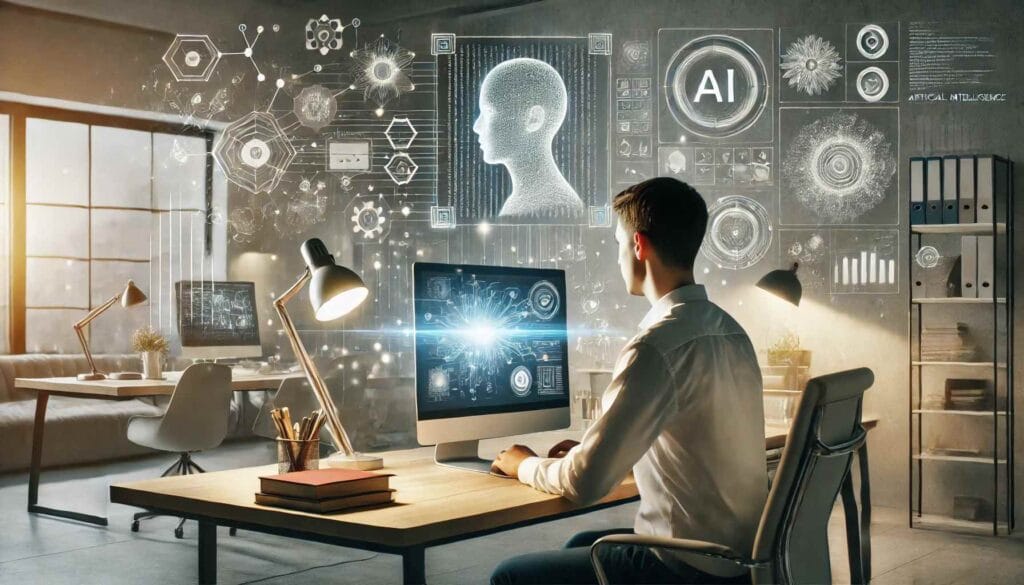Leveraging Artificial Intelligence for Personal Skill Enhancement: A Comprehensive Guide

The influence of artificial intelligence (AI) on individuals’ personal skills is vast and multifaceted, with the potential to significantly enhance, reshape, or even disrupt traditional skill sets. As AI technology continues to evolve, its impact on personal development becomes more pronounced across various domains, from cognitive abilities to professional and personal growth. This article explores the various ways in which AI can influence individual skills and capabilities.
1. Enhancing Cognitive Abilities
AI-driven tools can act as personal assistants that enhance cognitive functions, such as memory, decision-making, and problem-solving. For example, AI-powered apps like personal knowledge managers or smart note-taking software can help individuals organize information, remember important details, and make better decisions by providing insights based on data analysis. Moreover, AI-driven educational tools can adapt to a learner’s pace and style, offering personalized learning experiences that cater to an individual’s strengths and weaknesses.
2. Improving Creativity
AI can act as a catalyst for creativity by automating routine tasks, thereby allowing individuals to focus on higher-level creative thinking. In the realm of art, music, or design, AI can provide suggestions or assist with generating new ideas. For instance, AI tools like Adobe’s Sensei use machine learning to streamline creative processes in graphic design and video editing, providing professionals with tools that can help them execute their visions more efficiently. Additionally, AI-based generative models are being used in various fields to produce innovative solutions, art, and even literature.
3. Boosting Productivity
One of the most immediate impacts of AI on individual skills is its ability to automate repetitive and mundane tasks. By doing so, AI frees up time for individuals to focus on tasks that require critical thinking, creativity, or emotional intelligence. In the workplace, AI-driven systems can handle scheduling, data entry, and other administrative tasks, allowing professionals to focus on more strategic responsibilities. Furthermore, AI tools can assist individuals in project management by providing data-driven insights, suggesting optimal workflows, and tracking progress toward goals.
4. Personalized Learning and Development
AI’s ability to personalize education and skill development is one of its most transformative aspects. Adaptive learning platforms can assess an individual’s learning style and tailor educational content to suit their preferences, strengths, and weaknesses. This individualized approach can lead to more efficient learning and faster skill acquisition. Whether it’s language learning apps, coding platforms, or leadership training, AI has the potential to accelerate the development of personal and professional skills.
5. Emotional Intelligence and Social Skills
While AI may not possess emotions, it can be used to augment and develop emotional intelligence (EQ) in individuals. AI-powered chatbots and virtual assistants are designed to interact with people in a manner that simulates human conversation, offering opportunities for individuals to practice and improve their communication skills. These tools can also help individuals gain feedback on how they express themselves and how they are perceived, contributing to better interpersonal skills. Additionally, AI can be used to simulate social scenarios for training purposes, such as practicing conflict resolution or negotiation skills.
6. Job-Specific Skill Enhancement
AI is also making strides in improving skills that are specific to certain industries. For instance, in the healthcare industry, AI algorithms can assist doctors in diagnosing medical conditions by analyzing patient data and providing recommendations. This ability to quickly analyze large datasets and uncover patterns that may not be immediately obvious enhances a professional’s diagnostic skills. Similarly, in the financial sector, AI-driven tools can help individuals improve their analytical skills by providing real-time market data, trend analysis, and predictive analytics.
7. Lifelong Learning and Adaptability
AI is playing a critical role in enabling lifelong learning by providing individuals with continuous access to knowledge and training resources. In an ever-changing job market, individuals who can quickly adapt to new technologies and roles will be more successful. AI-powered platforms offer a wide range of learning opportunities, from technical skills to soft skills. As the labor market evolves and new careers emerge, the ability to acquire new skills rapidly will become increasingly important, and AI will play a central role in facilitating this adaptability.
8. Challenges and Ethical Considerations
Despite the many benefits AI offers in developing personal skills, there are also challenges and ethical considerations. One concern is the potential over-reliance on AI systems, which could lead to a decline in critical thinking and problem-solving abilities. For example, if individuals use AI tools to handle too many tasks, they might not develop the cognitive flexibility needed to address complex issues. Additionally, privacy and data security concerns must be addressed, as AI systems often rely on personal data to provide personalized services. Ethical considerations surrounding the use of AI, such as bias in algorithms and the potential for job displacement, also require careful attention.
Conclusion
The impact of AI on personal skills is profound and multifaceted, with the potential to significantly enhance cognitive abilities, creativity, productivity, and emotional intelligence. By enabling personalized learning, automating repetitive tasks, and providing tools for skill development, AI is transforming the way individuals approach personal and professional growth. However, the ethical challenges and potential over-reliance on AI also highlight the importance of balancing technological advancements with human capabilities. As AI continues to evolve, individuals must remain mindful of its impact on their skills and strive to leverage its potential in a way that complements their own abilities.
In the future, those who can harness the power of AI to augment their skills and adapt to new developments will be well-positioned to thrive in an increasingly technology-driven world.
Source : Medium.com




